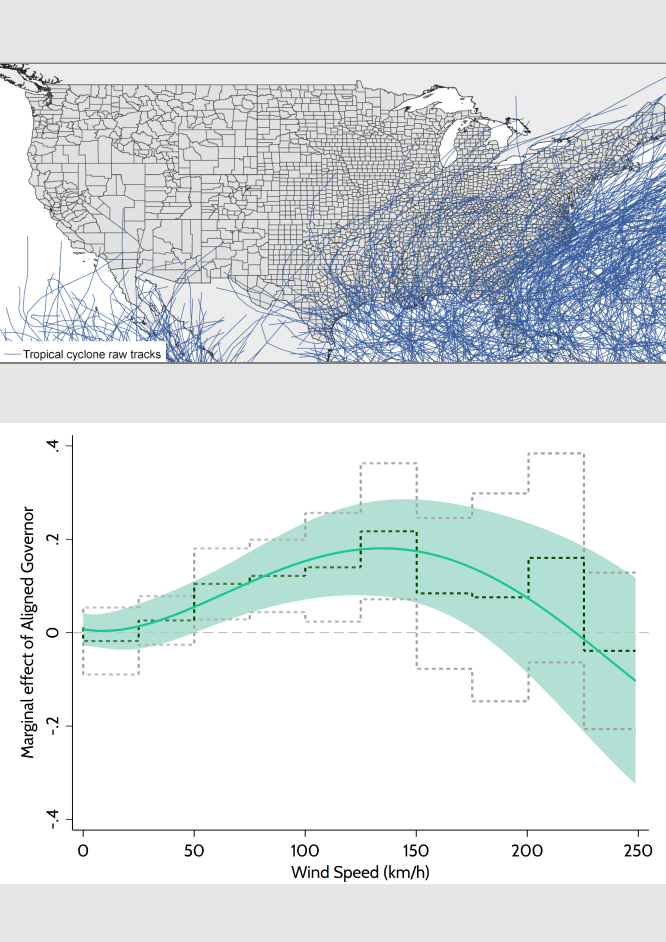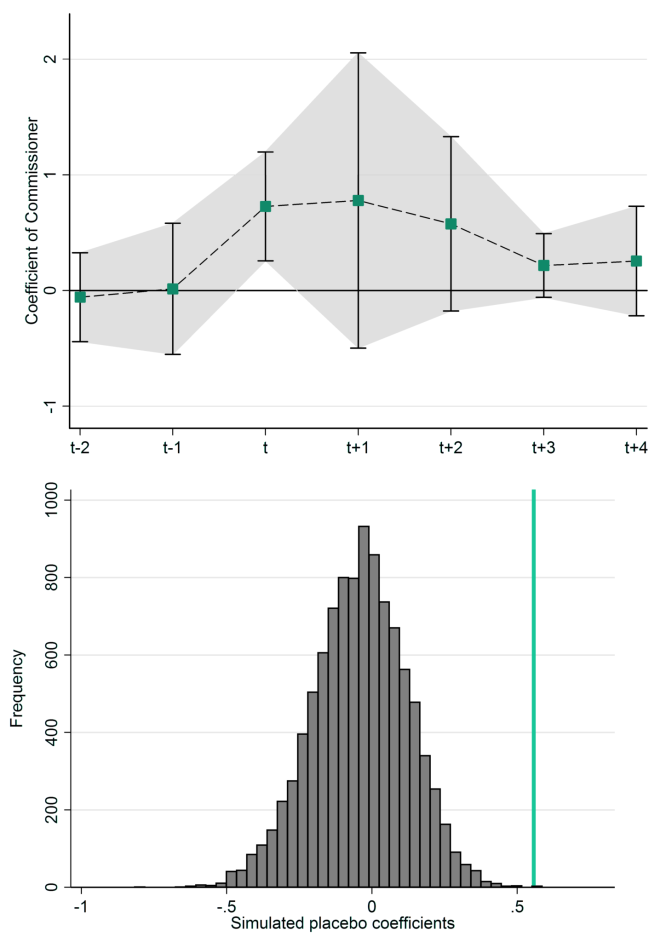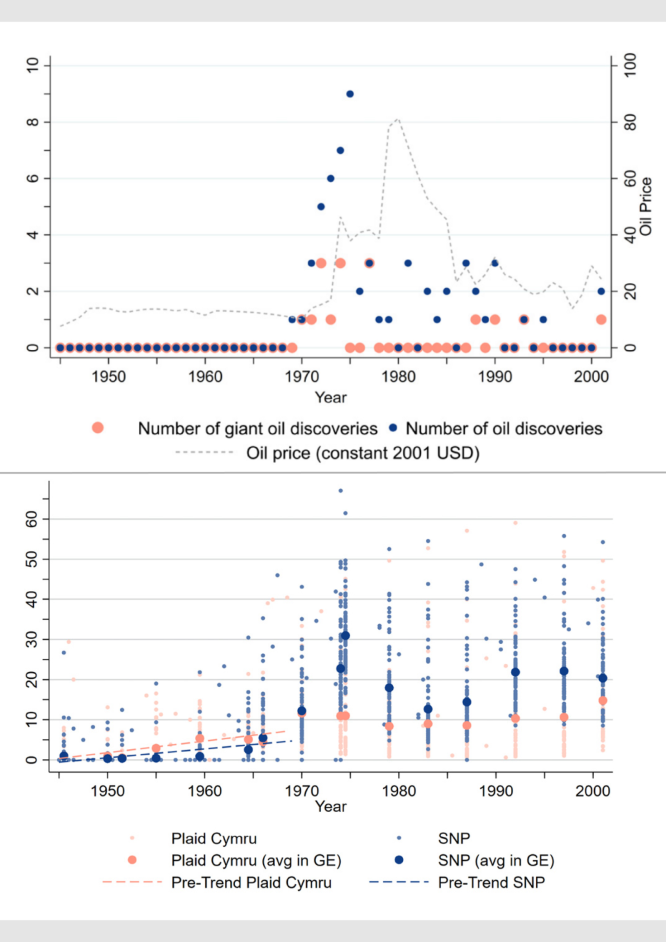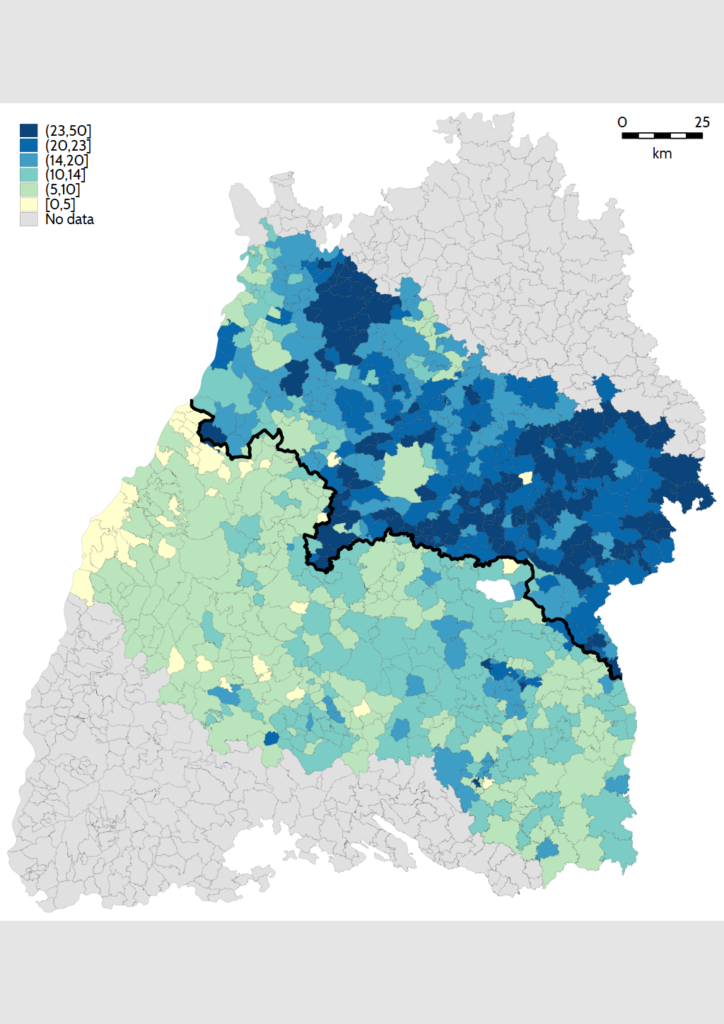Publications
Disastrous Discretion: Political Bias in Relief Allocation Varies Substantially with Disaster Severity
The Review of Economics and Statistics, accepted for publication (with Sven Kunze)
Most recent working paper version – January 2023
Previous working paper versions were circulated using the variant title “Disastrous Discretion Ambiguous Decision Situations Foster Political Favoritism“ (CESifo Working Paper No. 9710).
Allocation decisions are vulnerable to political influence, but it is unclear in which situations politicians use their discretionary power in a partisan manner. We analyze the allocation of presidential disaster declarations in the United States, exploiting the spatiotemporal randomness of all hurricane strikes from 1965-2018 along with changes in political alignment. We show that decisions are unbiased when disasters are either very strong or weak. Only after medium-intensity hurricanes do areas governed by presidents’ co-partisans receive up to twice as many declarations. This hump-shaped political bias explains 8.3 percent of overall relief spending, totaling about USD 400 million per year.
- “Wann Katastrophenhilfe parteitaktisch eingesetzt wird“, KOF Bulletin, November 4, 2022
- English version: “A politician’s perfect storm: when disaster relief is politically biased“
- French version: “Quand l’aide en cas de catastrophe devient une tactique partisane“
Towards the Greater Good? EU Commissioners‘ Nationality and Budget Allocation in the European Union
American Economic Journal: Economic Policy 10.1, 2018 (with Kai Gehring)
We demonstrate that the nationalities of EU Commissioners influence budget allocation decisions in favor of their country of origin. Our focus is on the Commissioners for Agriculture, who are exclusively responsible for a specific fund that accounts for the largest share of the overall EU budget. On average, providing the Commissioner causes a 1 percentage point increase in a country’s share of the overall EU budget, which corresponds to 850 million euros per year. There are no different pretreatment trends and the magnitude of the bias from selection-on-unobservables would have to be implausibly high to account for the estimated coefficient.
- “Funding and Favoritism in the EU”, Chart of the Week, American Economic Association, February 21, 2018
- “Why the Commission Needs Reform”, Euractiv, June 21, 2017
- “Bonus für die Heimat”, Wirtschaftswoche, April 1, 2016, issued as print article only
- “Wenn ein EU-Kommissar 500 Millionen Euro pro Jahr wert ist”, Neue Zürcher Zeitung, March 8, 2016
- “Wie EU-Politiker ihre Heimat systematisch bevorzugen”, Handelszeitung, March 10, 2016
Regional Resources and Democratic Secessionism
Journal of Public Economics 181, 2020 (with Kai Gehring)
Although resources have been shown to influence secessionist conflicts in developing countries, their effect in established democracies has largely been neglected. We integrate regional resources and inter-regional transfers in a model of democratic secession, and show that relative regional income correlates positively with secessionist party success in a large panel of regions. To establish causality, our difference-in-differences and triple-differences designs exploit that Scotland and Wales both feature separatist parties, but only an independent Scotland would profit from oil discoveries off its coast. We document an economically and statistically significant positive effect of regional resources and rule out plausible alternative explanations.
- “Aufstieg der Separatisten: Der Einfluss regionaler Ressources / Montée des séparatistes : influence des ressources régionales”, KOF Bulletin, December 4, 2020
- “Separatism on the Rise: the Role of Regional Resources”, VOX – CEPR Policy Portal, February 18, 2020
- “Von Katalonien bis Schottland: Ökonomische Gründe für den Erfolg separatistischer Parteien”, Ökonomenstimme, September 27, 2017
Current Research
Immigration and Nationalism in the Long Run
CESifo Working Paper No. 10621 (with Valentin Lang) – latest update: Working Paper (December 2024)
This study identifies how local experiences with immigration in the past shape political reactions to immigration in the present. We exploit a spatially discontinuous resettlement of forced migrants in post-war Germany, analyzing digitized municipal panel data from 1925-2021. Nationalist electoral backlashes against contemporary immigration are substantially weaker in regions that were historically exposed to immigrants. To examine the mechanisms, we conduct a geocoded survey with experimental elements in the study region. Results from both the randomized and the natural experiment consistently show that historical exposure to immigration has led natives to revise their beliefs about the consequences of immigration, particularly its long-term economic benefits. With additional evidence beyond the study context, the results demonstrate how positive integration experiences can mitigate nationalism in the long run.
- „Sie sind immun gegen die AfD“, Frankfurter Allgemeine, June 12, 2023
- „Vertriebene stärken die demokratische Mitte“, Sudetendeutsche Zeitung, June 23, 2023
- „Langfristige Einwanderungserfahrungen schwächen nationalistische Parteien / Long-term experience of immigration weakens nationalist parties“ KOF Bulletin. September 1, 2023
Wind Power and Veto Power
Work in progress (with Mattias Folkestad)
Every society faces decisions about where to locate infrastructure that provides benefits to the general public but creates concentrated local costs. We examine how decentralization of decision-making authority affects the allocation of critical but locally contentious facilities. By combining geospatial data on all approved and rejected wind turbines in Sweden with granular estimates of population and wind distribution, our study analyzes how the introduction of municipal veto power influences turbine siting. Our results show that local politicians, when empowered with veto rights, reject applications for wind turbine sites that would affect a significant number of their constituents. Using data on individual real estate transactions and site-specific estimates of wind energy production, we assess how an increase in local decision-making power affects the overall efficiency of energy production, the distribution of local social costs, and environmental justice in the context of the energy transition.
Immigrant Crime Affects Political Attitudes in Real-Time
Work in progress (with Valentin Lang)
tba





